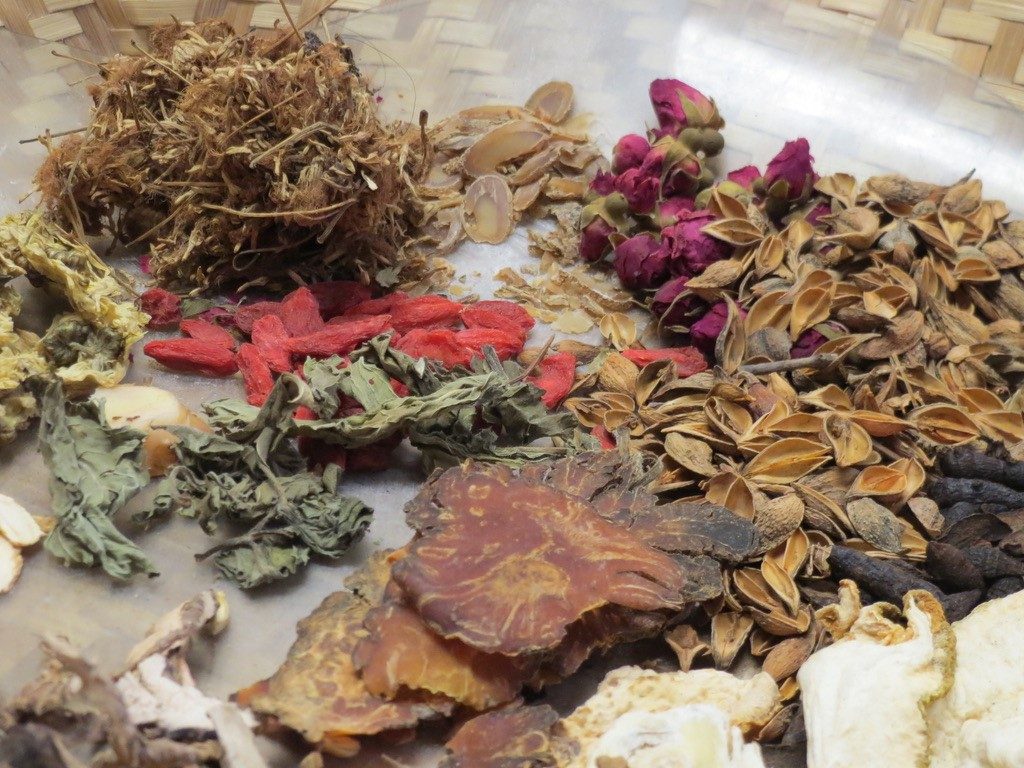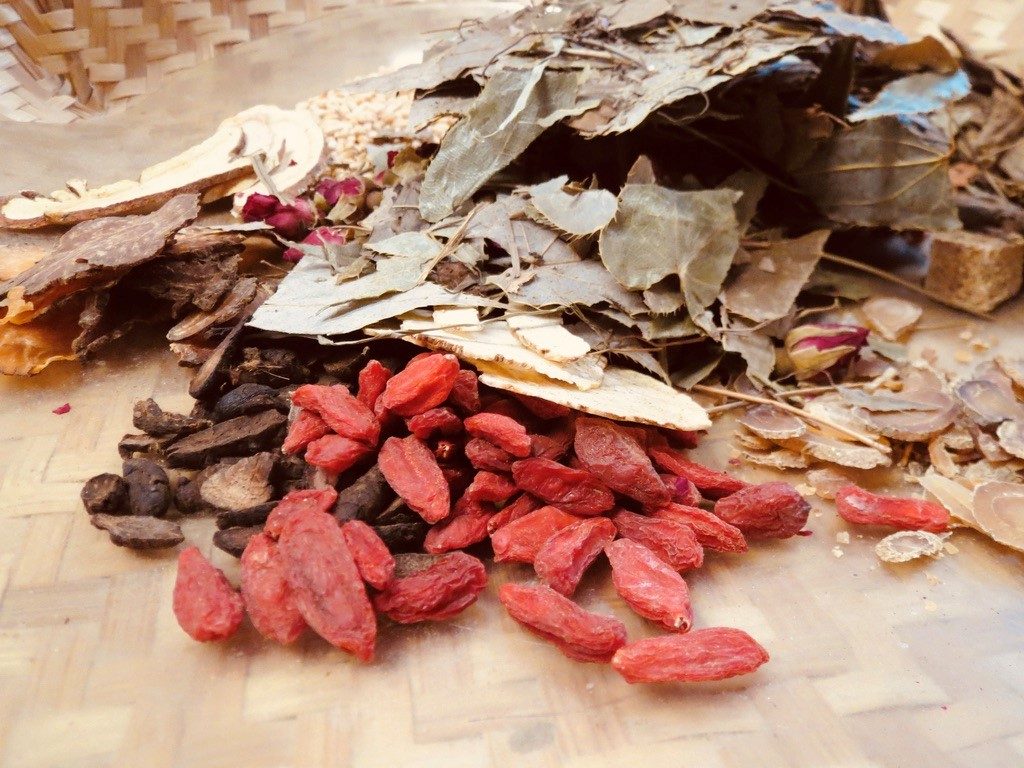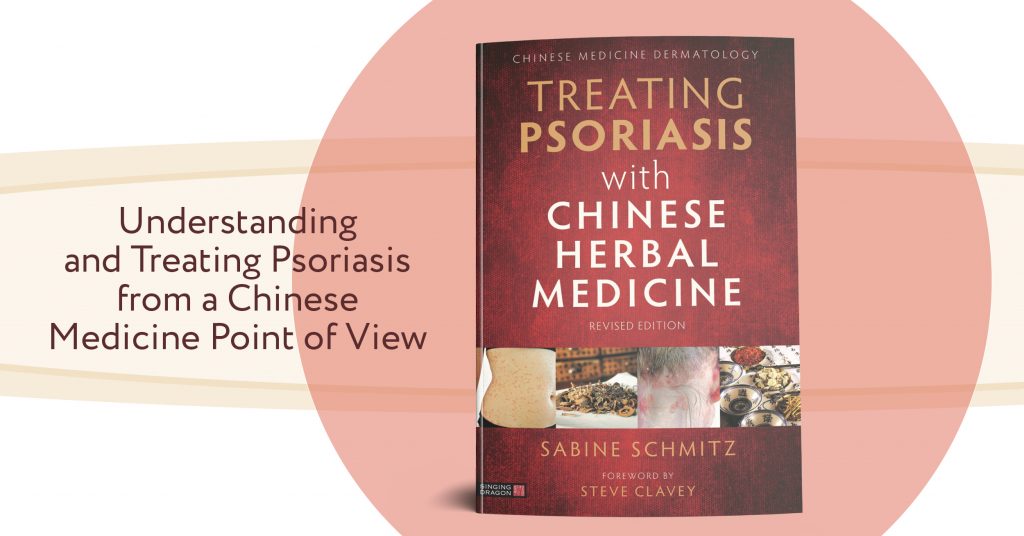 Sabine Schmitz (M. Med. TCM) is a graduate of the Zhèjiang Chinese Medical University in Hángzhou, China where she majored in Chinese medical dermatology. Her enormous knowledge treasures from China as well as her many years of experience benefit many patients with chronic and complex skin diseases – such as psoriasis and eczema – but also many other patients with various diseases. Sabine has a busy TCM practice specializing in skin diseases, gynecological disorders and infertility treatment. Her first book with Singing Dragon, Treating Psoriasis with Chinese Herbal Medicine (Revised Edition) was published in 2020 as part of a new dermatology series. Her second book with us, Treating Acne and Acne Rosacea with Chinese Herbal Medicine, will be published in November 2021.
Sabine Schmitz (M. Med. TCM) is a graduate of the Zhèjiang Chinese Medical University in Hángzhou, China where she majored in Chinese medical dermatology. Her enormous knowledge treasures from China as well as her many years of experience benefit many patients with chronic and complex skin diseases – such as psoriasis and eczema – but also many other patients with various diseases. Sabine has a busy TCM practice specializing in skin diseases, gynecological disorders and infertility treatment. Her first book with Singing Dragon, Treating Psoriasis with Chinese Herbal Medicine (Revised Edition) was published in 2020 as part of a new dermatology series. Her second book with us, Treating Acne and Acne Rosacea with Chinese Herbal Medicine, will be published in November 2021.
When I look at social media these days, I see more and more reports from patients describing improvements in their skin diseases by using Chinese herbs. That is a good thing because it spreads awareness of Traditional Chinese Medicine (TCM) and gives other patients, who might currently be looking for a suitable therapy, options and ideas. Sometimes, patients upload pictures of granules, sometimes raw herbs or, in rare cases, I see pills. However, today I would like to discuss why raw herbs are best in the treatment of chronic and complex skin diseases from a therapist’s point of view, who sees difficult skin diseases every day.
Using decoctions as treatment
The wide variety of treatment options developed over the centuries and the extensive range of internal and external applications TCM offers are a direct response to the flexibility required in curing complex disease patterns. When talking about raw herbs, I am referring to “decoctions”, in Chinese this is called jiān jì (煎剂). As seen in practice, decoctions, or teas, of raw herbs are the most effective form of treatment. They are easy to prepare and drink. And when I say easy to prepare, I mean boiling raw herbs up for a couple of hours a week – it’s not rocket science and most patients will do this when the benefits are properly explained to them.
How to make a herbal decoction
Let’s go into detail on how to make a herbal decoction. Herbal decoctions are prepared in three steps: firstly soaking, which allows the cell walls of the medicinal substances to expand for better extraction during boiling; then boiling in a ceramic pot – a ceramic pot is usually the best choice, because some herbs are not suitable for cooking in a metal pot; and lastly, straining. The patient then drinks the strained liquid. To obtain the highest efficacy of the herbs when brewing, the herbs are usually boiled twice. Some herbs are added early, some later; some herbs are bagged and others are dissolved in water and taken directly without boiling.
The substances extracted from a freshly brewed herbal decoction are more potent than from any other forms of prepared Chinese herbal medicine. Each prescription combines individual medicinal herbs selected in each case to fulfill the individual’s needs. Decoctions are flexible in their application and allow easy adaptation of the prescription to the condition as it presents on a particular day. Thus, the patient will obtain an individually tailored prescription fitting his or her medical condition and current situation. One single pill can never be effective for thousands of patients, as seen in conventional medicine, when every one of these people has their own individual symptoms and different situation in life.
Páo zhì
Raw herbs can also be modified through processing techniques, known as páo zhì 炮制. Páo zhì is a traditional preparation process that changes and specifies the therapeutic effect of medicinal plants. It reduces toxicity and unwanted side effects, changes pharmacological properties, enhances the precision of therapeutic effects, and changes the smell and taste of the plants. There are different preparation methods, such as roasting, frying, steaming, baking, calcining, germinating, fermenting, or cooking individually or in special combinations. Applied in daily practice, this means that if you want to change the action — for example, strengthen a certain effect of a herb — or you want to make it more tolerable for patients with weak digestion, you can use páo zhì — depending on your needs. Any qualified TCM pharmacy is able to prepare it. In many dermatological and gynaecological cases it is not possible to go without páo zhì, and with granules or pills, for example, páo zhì is just not possible.
Another advantage of herbal decoctions is that the ingredients can be cooked for different lengths of time. Flowers, for example, are very light in nature and should only be cooked for a few minutes. Heavy substances such as minerals should be cooked for a longer time, at least 60 minutes, and they are often pre-cooked for this reason. In general, a fresh herbal decoction with a long cooking time is best for deep-rooted processes because it can reach the deep layers of the body and quickly attack the disease. This means that the correct location of the disease must be taken into account in order to cure illness. For external applications, herbs are only very briefly boiled because the effects must address the surface. In contrast, granules or pills cannot fulfil this.
To summarize, within a complex and individual tailored herbal formula, many chemical reactions occur between the active ingredients of each single herb. The dosages of decoctions can be used with precision. A decoction can be modified in many ways and works fast. Additionally, in the West, raw herbs are considerably cheaper than other application forms such as herbal granules or pills. Considering all this, when treating a serious case, raw herbs are always recommended. Although herbal decoctions do not taste good, patients usually tolerate them once the benefits are explained. Patients often take a very long drive to come to me and it is my duty to inform them about what is the most effective therapy for them. And when it comes to herbs, herbal decoctions are usually the best choice to treat difficult skin conditions and many other health issues.
 Treating Psoriasis with Chinese Herbal Medicine (Revised Edition)
Treating Psoriasis with Chinese Herbal Medicine (Revised Edition)
A Practical Handbook
by Sabine Schmitz
Using a modern and practical approach, this book looks at the root cause of psoriasis from a Chinese medicine perspective. It examines in depth the most common Chinese medicine syndromes and formulas that have proved to be effective, discusses the role of the environment and emotional health and covers both internal and external applications.